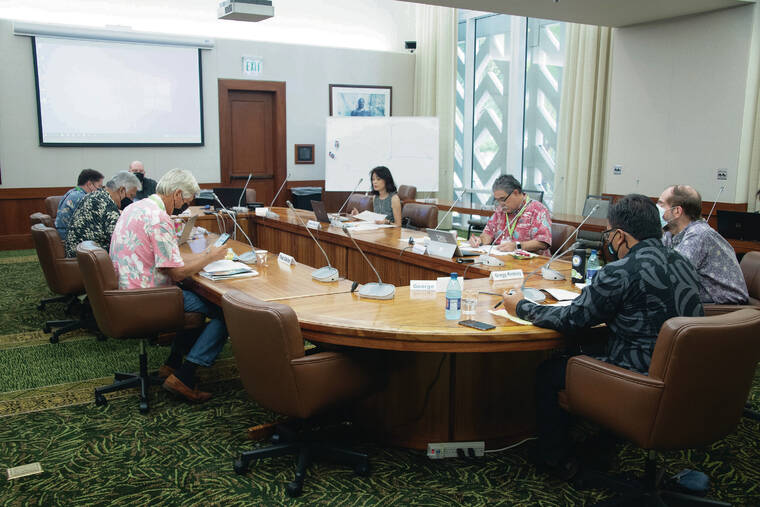Those who serve on the boards of public agencies perform a vital service for all of us. They are chosen for their expertise and good judgment, and accept the responsibility of serving the public to the best of their abilities. They often are volunteers, serving without compensation.
That’s why it’s so disheartening — outrageous, actually — that these civic-minded individuals would be told to shut up, conform, or get out.
The most recent example comes from a new proposed code of conduct for the Hawaii Tourism Authority (HTA). One of the draft rules would require a board member to “resign his/her position as a board member if she/he intends to publicly oppose a board action before doing so.”
Thankfully, the proposed gag order appears to be going nowhere. An HTA committee has recommended against the change, and board members have objected to the rule. Full board approval would be required to change the code of conduct.
Still. The HTA is undergoing a major reorganization, shifting its focus from tourism marketing to destination management. The change means that rather than just increasing the number of visitors, HTA will emphasize sustainability — protecting Hawaii’s natural resources, cultural integrity and community support.
HTA board members will play key roles in guiding the way forward. The notion that they be prevented from speaking their minds freely and publicly about our most important economic driver should be anathema to any civic-minded person. After all, HTA is a publicly funded agency, and we all have a stake in its success.
Unfortunately, misguided public officials too often choose “controlling the message” over the discomfort of public dissent. For example:
In 2015, the Honolulu Ethics Commission adopted a policy, later rescinded after a public outcry, prohibiting the executive director and his staff from engaging in “media activities to air concerns/grievances regarding the operations of the Ethics Commission, or interpret or comment on any decisions or advisory opinions.”
In 2019, the Office of Hawaiian Affairs Board of Trustees investigated trustee Keli‘i Akina for publicly criticizing an action of the board, on the grounds that he violated OHA’s code of conduct that requires support for board decisions.
Hawaii’s public agencies are not little politburos. Their job is not to control the message. They are supposed to do their best to achieve their goals, correcting missteps along the way, allowing full and open discussion to guide the process.
Yes, it can get messy. But the public can be trusted to sort things out. That’s how it works in a free country.

